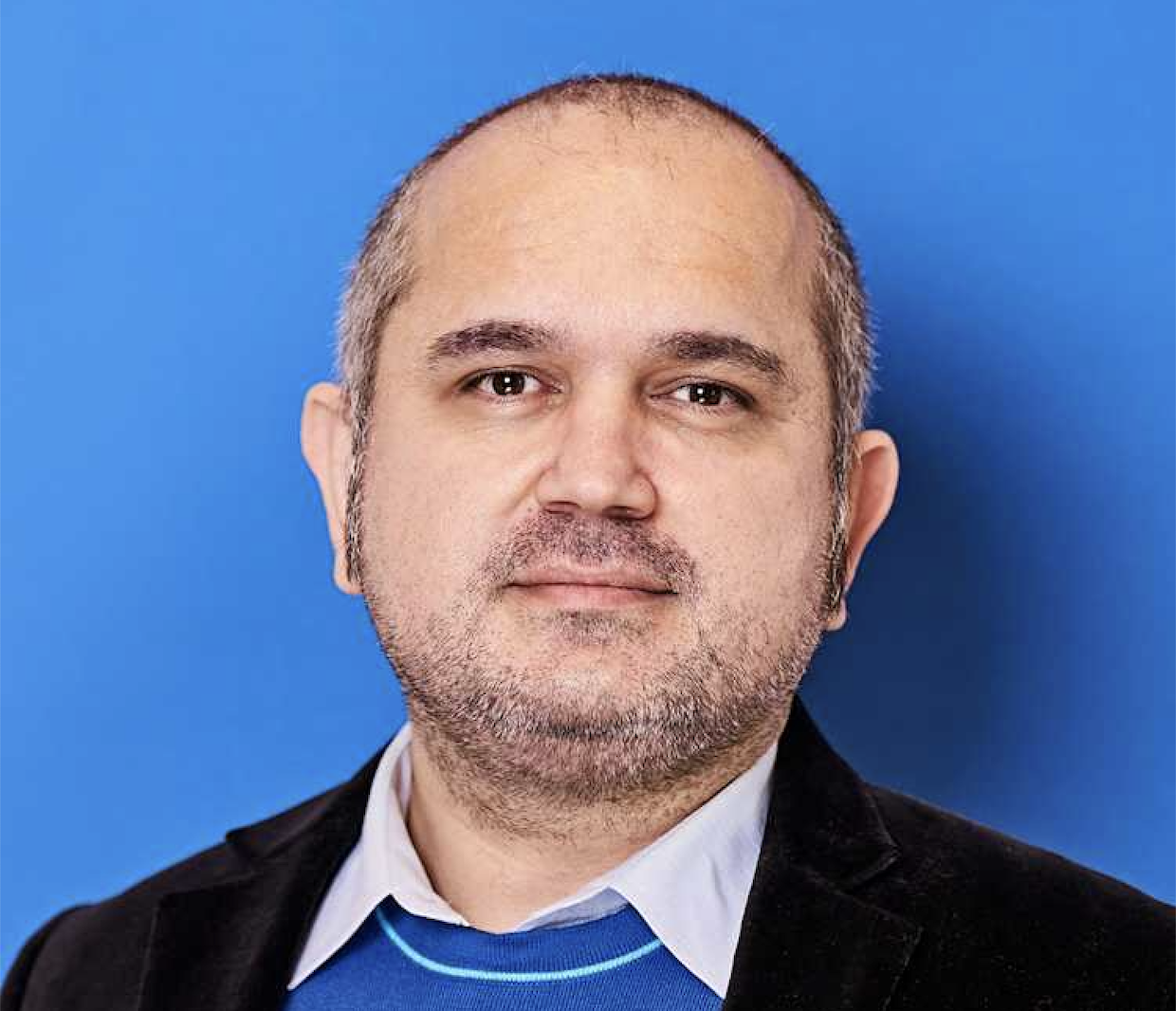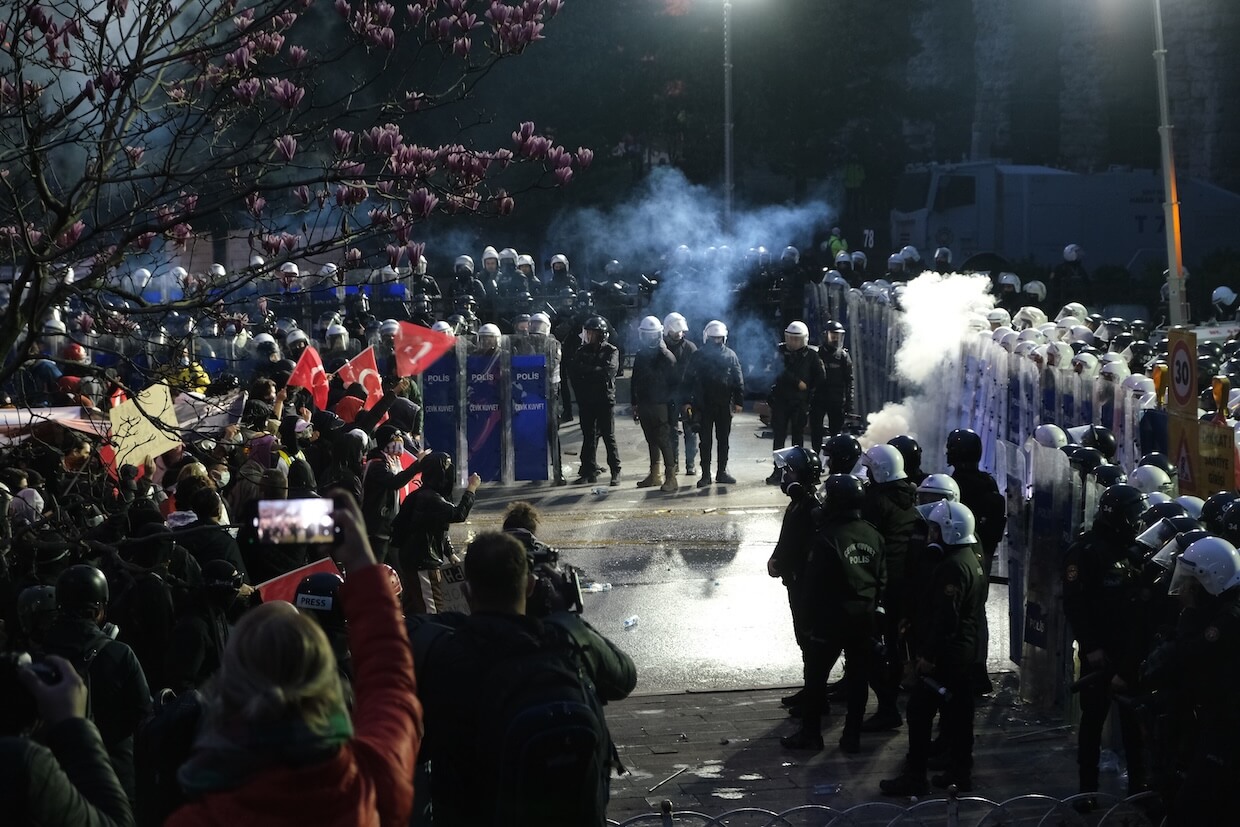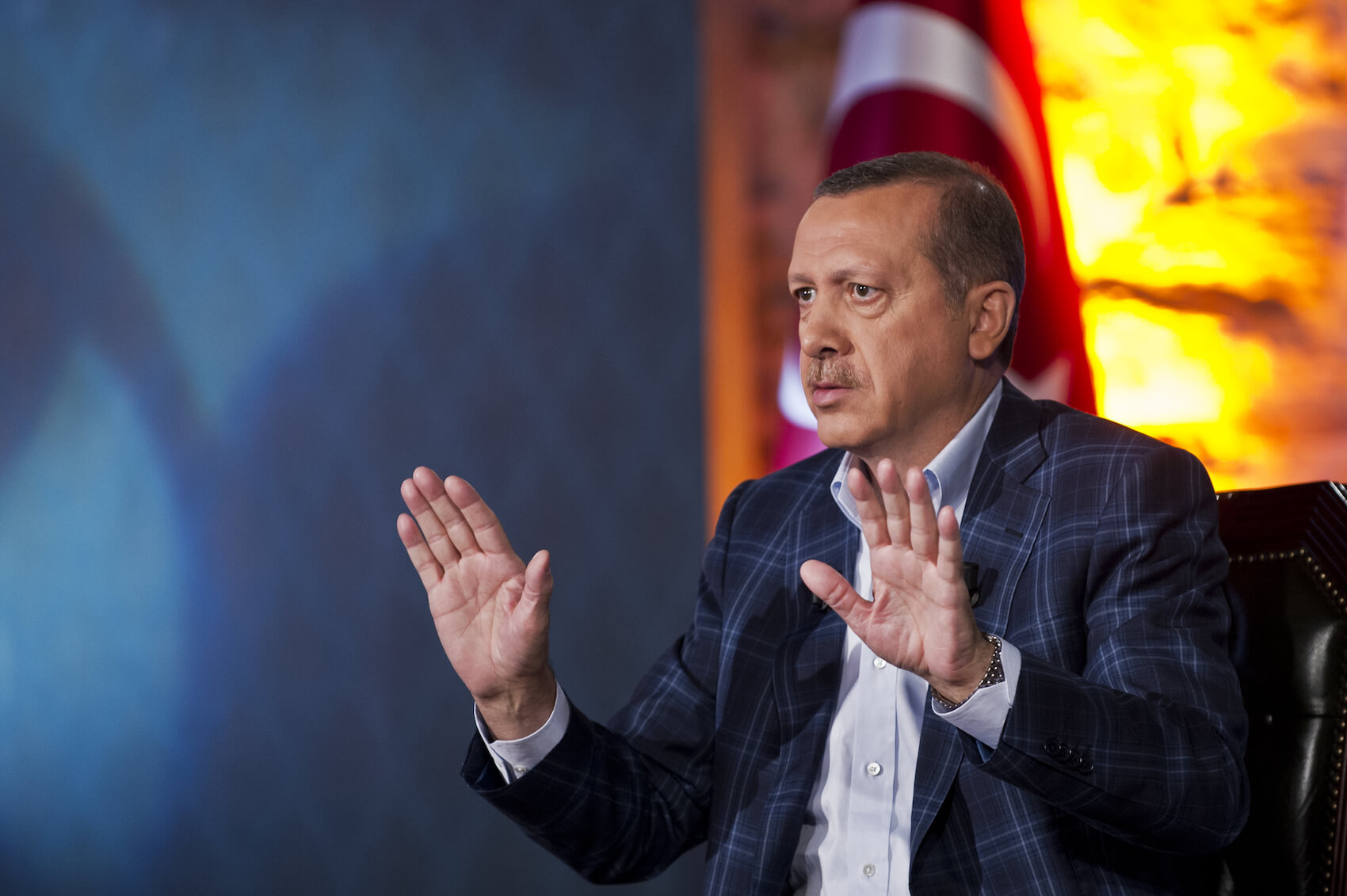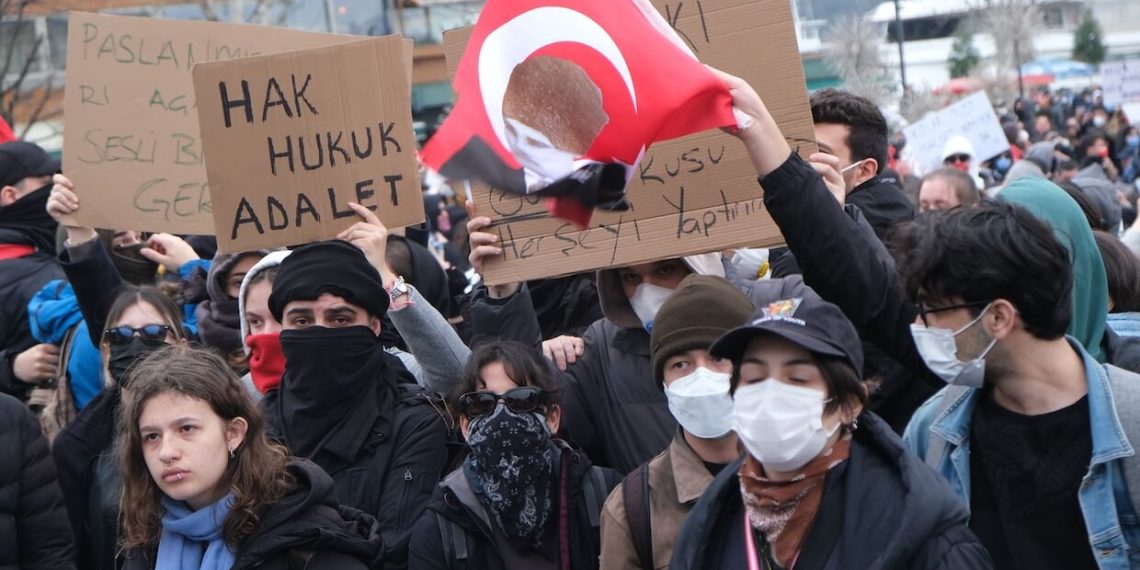In this compelling interview with ECPS, Dr. Hakki Tas argues that repression—not legitimacy—has become the Erdogan regime’s default mode of rule. Highlighting the arrest of Istanbul Mayor Ekrem Imamoglu, Dr. Taş contends that Turkey is moving further from competitive authoritarianism toward full authoritarian consolidation. As electoral legitimacy weakens, coercion fills the void, revealing a regime reliant on fear, control, and chrono-political narratives to survive. “Remaining in power,” Dr. Tas says, “is the only survival strategy.” This conversation explores the strategic logic behind repression, the shrinking political arena, and the uncertain future of ailing Turkish democracy.
Interview by Selcuk Gultasli
In an interview with the European Center for Populism Studies (ECPS), Dr. Hakki Tas, Research Fellow at the German Institute for Global and Area Studies, offers a sobering assessment of Turkey’s democratic trajectory under President Recep Tayyip Erdogan. Dr. Tas argues that “coercion has become the Erdogan regime’s default tool of governance,” signaling a shift in strategy where repression, rather than consensus or legitimacy, undergirds the government’s hold on power. This growing reliance on coercive mechanisms reflects not only the regime’s authoritarian drift but also its deepening vulnerability in the face of economic instability and eroding public support.
In Dr. Tas’s view, the political elite in Turkey face a stark reality: “remaining in power is the only survival strategy.” With dwindling economic resources, declining electoral popularity, and limited institutional buffers, Erdogan and his allies find themselves increasingly dependent on repressive tactics to maintain control. The arrest of Istanbul Mayor Ekrem Imamoglu, widely seen as the most viable opposition figure, exemplifies this logic. For Dr. Tad, such moves do more than target individuals; they erode fundamental democratic principles by narrowing the space for political competition and undermining voter choice.
Indeed, Dr. Tas highlights the regime’s systematic efforts to degrade electoral competitiveness. While Turkey has retained the formal trappings of multiparty elections, the conditions required for genuine democratic choice—such as “electoral vulnerability,” “electoral availability,” and “decidability”—have been steadily dismantled. The elimination of high-profile opposition figures like Imamoglu not only tilts the playing field but also challenges the very notion of Turkey as a competitive authoritarian regime. As Dr. Tas succinctly puts it, “calling Turkey’s regime ‘competitive’ is increasingly difficult to justify.”
Beyond specific political maneuvers, Dr. Tas situates these developments within a broader authoritarian logic—one that employs what he calls a “chrono-political strategy” to frame every election as an existential battle for the nation’s soul. Through an intricate weaving of past grievances, present insecurities, and imagined futures, Erdogan casts challenges to his rule as threats to the entire Turkish polity. This blend of populist narrative-building, strategic repression, and institutional erosion has enabled the regime to survive despite mounting internal and external pressures.
This interview explores the implications of Imamoglu’s arrest, the fragility of Erdogan’s political toolkit, and the possible futures of ailing Turkish democracy. At stake is not only the fate of one politician or election, but the broader question of whether Turkey can still lay claim to competitive politics—or whether it has entered a new phase of authoritarian consolidation.

Here is the transcription of the interview with Dr. Hakki Tas with some edits.
Calling Turkey’s Regime ‘Competitive’ Is Increasingly Difficult to Justify
How does the arrest of Ekrem Imamoglu fit within the broader trajectory of democratic backsliding in Turkey, and does it signify a critical turning point toward full authoritarian consolidation, or does it remain within the bounds of competitive authoritarianism?
The competitiveness of the regime in Turkey has been in question not only today but throughout the last decade as well. While Turkish elections have long been marked by significant contentiousness, this indeed does not necessarily translate into genuine political competition. True competitiveness requires conditions such as electoral vulnerability (where incumbents can realistically be unseated), electoral availability (where voters are open to changing party preferences), and decidability (where parties offer distinct and clearly communicated platforms).
Nevertheless, by potentially eliminating the most prominent challenger from the electoral arena, the jailing of Imamoglu further undercuts each of these core democratic prerequisites. While Turkey has not yet crossed into fully authoritarian rule, actions like arresting leading opposition figures push the system closer to outright authoritarian consolidation, and the adjective “competitive” to describe the current regime becomes increasingly tenuous.
For Turkey’s Ruling Elite, Staying in Power Is the Only Survival Strategy
To what extent can Imamoglu’s arrest be interpreted as a reflection of Erdogan’s growing political insecurity in anticipation of the 2028 elections, rather than an expression of consolidated authoritarian control?
These two dimensions—growing political insecurity and authoritarian tendencies—often intersect, since remaining in power is the only survival strategy for the current political elite. The insecurity itself is clear: with economic resources depleted, Erdogan can no longer dispense patronage to his base as effectively, nor can he weave compelling narratives that resonate with voters and align with his domestic or foreign policy choices. Consequently, if he cannot win the minds and hearts of the masses, coercion becomes his default instrument. Of course, such reliance on repression highlights the fragility of the regime. Repression may not be the most effective tactic, but it probably is the only remaining path to maintain power.
In the light of Erdogan’s declining popularity and the ongoing economic crisis, to what degree can the regime continue to depend on electoral legitimacy, or is it likely to increasingly abandon the electoral route in favor of more authoritarian mechanisms?
Erdogan faces a fundamental conundrum when it comes to sustaining electoral legitimacy amidst dwindling popularity and deepening economic woes. Unlike many of his autocratic counterparts, he cannot rely on a rentier economy to placate key constituencies, nor can he fully count on a steadfast, loyal military to neutralize dissent. In this context, elections—no matter how constrained—have long served as a principal source of legitimacy. The semblance of competitiveness has permitted Erdogan to maintain at least a façade of democratic governance, preserving his rule without incurring the immediate costs of blatant authoritarianism.
Yet this tactic cuts both ways. Without holding elections, Erdogan risks forfeiting any claim to popular legitimacy, leaving him reliant on repressive mechanisms that are by no means guaranteed to remain loyal. At the same time, the very act of putting his government to an electoral test brings the danger that genuine opposition could mobilize sufficiently to threaten his grip on power.
When Parties Fail, the Streets Speak

How might a potential state-led intervention in the CHP—modeled after kayyum-style trusteeship—reshape the Turkish party system and transform the landscape of opposition politics?
This would only underscore the fact that the traditional institutional mechanisms of political mediation have long been obsolete in Turkey and could further legitimize street-level mobilization. Dismantling the CHP’s autonomy would not only deepen the regime’s authoritarian tilt but also galvanize citizens to challenge the government outside the confines of a party framework, amplifying the prominence of direct action in shaping Turkey’s political future.
Given Imamoglu’s capacity to mobilize broad, cross-ideological support, what are the strategic implications of his removal for the Turkish opposition’s ability to mount a viable electoral challenge?
Imamoglu is one of the Turkish opposition’s most versatile and unifying figures, whose cross-ideological appeal had begun to transcend traditional fault lines; however, this broad support did not necessarily constitute a robust coalition committed to full democracy. Moreover, the regime has strategically sought to keep the political and ideological fissures among the opposition intact—most notably by attempting to reconcile with Kurdish political actors. Nonetheless, Imamoglu’s ability to attract diverse groups demonstrated a tangible path toward a more inclusive opposition discourse, one that could, at least temporarily, bridge political cleavages around a common goal. The opposition leaders have performed well so far.
From Twin Enemies to Universal Threats
How does the post-2016 securitization of political opposition compare to earlier state narratives targeting the Gulen movement, and in what ways is this logic now being extended to opposition figures such as Imamoglu?
The post-coup securitization narrative has intensified and broadened the regime’s ability to label virtually any dissent as a threat to national security, building on earlier campaigns against the Gulen movement and Kurdish groups. Historically, it was relatively straightforward to demonize these constituencies by invoking entrenched suspicions of political Islam and Kurdish nationalism—“twin enemies” in the public imagination.
Compared to its anti-Gulen campaign, the government has deployed similar tactics—such as dehumanizing language, terrorism accusations, and show trials—; extending such rhetoric to figures like Imamoglu, however, proves more challenging, given his secular and broadly appealing profile. The scope of securitization continues to expand, as seen in the Gezi trials, and likely will intensify further, reinforcing polarization, when the support of the majority is not viable.
In what ways is the Erdogan regime deploying chrono-political narratives—fusing past, present, and future—to legitimize authoritarian measures against the opposition in the lead-up to the 2028 elections?
Currently, Erdogan lacks a popular grand narrative to frame recent developments. Instead, he taps into center-right and conservative sentiments with rhetoric about “street terrorism.” Meanwhile, pro-government media and figures recirculate default anti-Kemalist tropes, constantly reminding the AKP base of the 1997 “postmodern coup” and emphasizing the AKP’s role as the champion of an “Anatolian Revolution” against the vestiges of “Old Turkey” represented by the CHP. By melding past grievances with current insecurities, this chrono-political framing casts state crackdowns as the preservation of a people’s revolution rather than an assault on democratic norms, thereby embedding present events in a broader narrative of conflict between a secular Kemalist elite and Muslim Anatolian people.
In a Post-Truth Arena, Victimhood Becomes the Most Potent Political Weapon
What does the political discourse surrounding Imamoglu’s arrest reveal about Turkey’s ongoing shift toward post-truth politics, in which narrative construction increasingly overrides evidence-based governance?
The discourse surrounding Imamoglu’s arrest illustrates Turkey’s deepening post-truth environment, in which the regime’s narratives often eclipse factual evidence through a deluge of fake news, half-truths, and conspiracy theories. Despite its formidable control over media outlets and intensified censorship of opposition voices, the government’s ability to craft a cohesive, persuasive message appears weaker compared to earlier high-stakes moments like the 2013 Gezi Protests or the aftermath of the 2016 coup attempt. This relative disarray in the official narrative highlights the regime’s further reliance on post-truth tactics to obfuscate the truth.
How does Erdogan’s portrayal of Imamoglu align with populist strategies that frame challengers as enemies of “the people,” and how does this dynamic intersect with Imamoglu’s own populist appeal?
Erdogan’s populist messaging has long relied on a Manichean division that pits “the people” against an allegedly subversive elite. Initially aimed at the Kemalist establishment during the 2000s, this rhetoric evolved to target foreign “dark forces” and domestic opponents, situating any threat to the AKP’s dominance within a grand narrative of external conspiracies seeking to weaken Turkey. In presenting Imamoglu as insolent and dismissive of the popularly elected government, Erdogan reinforces this populist framework, albeit in a manner that appears increasingly strained. The irony lies in removing a democratically elected mayor through what many view as politically motivated charges while simultaneously accusing him of undermining democracy—a strategy meant to maintain Erdogan’s self-image as the authentic representative of the public’s will.
Imamoglu, however, employs a form of counter-populism by depicting Erdogan’s regime as the entrenched new establishment and urging disparate groups marginalized under the AKP’s rule to unite. In this sense, he challenges Erdogan on his own turf, effectively turning the populist dichotomy back against the incumbent. Moreover, the very act of arresting Imamoglu grants him the victimhood status that has historically served Erdogan well, endowing Imamoglu with the same potent political currency of victimhood and moral high ground.
How Erdogan Weaponizes Crisis to Sustain Power

To what extent is anti-Western rhetoric being utilized to domestically legitimize the arrest of Imamoglu, and how does this tactic align with the AKP’s broader strategy of politicizing foreign policy?
Despite the AKP’s reliance on anti-Western rhetoric to legitimize controversial domestic and foreign policy moves throughout the 2010s, Erdogan has been more circumspect in explicitly invoking such themes to rationalize Imamoglu’s arrest. Some pro-government outlets have circulated conspiracy theories linking Imamoglu to foreign plots; however, Erdogan currently appears to prioritize pragmatic relations with both the European Union and the United States. This shift partly stems from renewed Western interest in Turkey’s security partnership against Russia, as well as the transactional dynamic that characterized Erdogan’s rapport with US President Donald Trump. In other words, while anti-Western discourse remains a familiar tool in the regime’s arsenal, Erdogan has downplayed it in favor of current diplomatic gains and economic considerations.
Nevertheless, the broader AKP strategy of politicizing foreign policy remains evident in the potential use of external conflicts as a diversionary tactic. Historically, Erdogan has displayed a capacity to refocus domestic anxieties onto external threats, thereby consolidating his base. If Imamoglu’s arrest triggers wider unrest, the regime may revert to stoking regional tensions and rally the public under a unifying, antagonistic narrative. Given the volatile regional landscape—replete with ongoing conflicts—there is ample opportunity to leverage foreign policy crises to overshadow or justify heavy-handed measures at home.
Does Imamoglu’s arrest represent a calculated moment within Erdogan’s chrono-political strategy to frame the 2028 election as an existential national struggle, and how does this timing contribute to the construction of a long-term authoritarian myth?
Erdogan’s repeated depiction of every electoral contest—with remarkable examples such as the December 2015 general elections and the 2017 constitutional referendum—as an existential choice for the nation epitomizes a populist politics of time. In this framework, the present becomes a decisive juncture between a promised utopia of national triumph and an apocalyptic scenario of total annihilation, all hinging on the leader’s continued rule. Imamoglu’s arrest, then, can be seen as another attempt to situate the 2028 election within this broader chrono-political strategy. Erdogan is undoubtedly a master of chrono-populism, a skill that has helped him become one of the longest-serving populist leaders in world history.
However, sustaining perpetual vigilance among the public is costly. If Erdogan cannot deliver tangible rewards beyond the mere avoidance of catastrophe, voter fatigue over these endless existential crises may erode the very support he seeks to reinforce. The timing of Imamoglu’s arrest, therefore, not only reflects a calculated bid to sustain a grand authoritarian myth but also risks overextending the populist device of crisis mobilization—leaving the regime vulnerable to disillusionment from an electorate that grows weary of ever-present emergency narratives.


